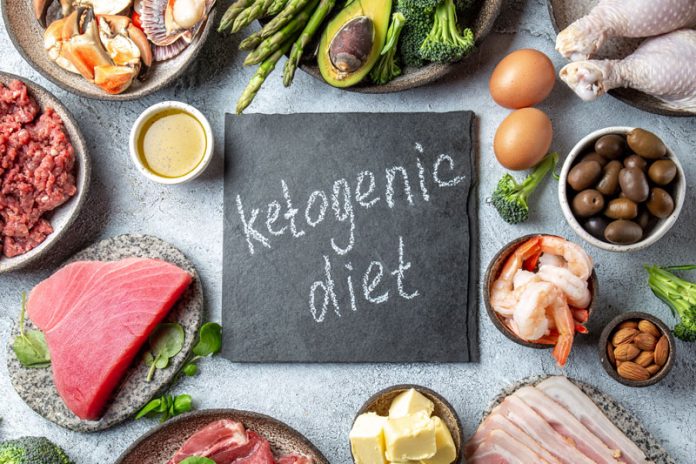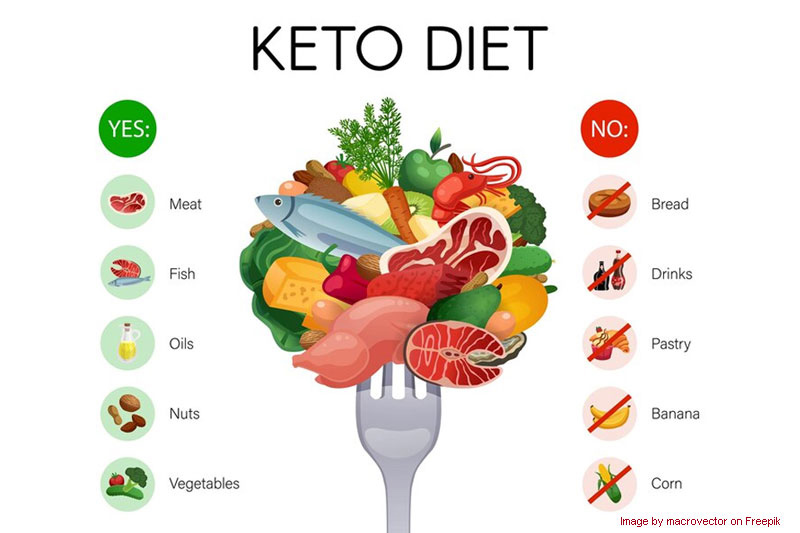
Keto Diet, the controversial high-fat, low-carb plan that can boost weight loss with potential pitfalls
Obesity poses a critical global health crisis, affecting around 1 billion people worldwide and contributing to approximately five million deaths annually, according to the World Obesity Atlas 2024.
This widespread issue is closely linked to chronic conditions such as diabetes, heart disease, and hypertension, underscoring the urgent need for effective dietary solutions. Among various approaches, the ketogenic diet, or “keto,” has emerged as a controversial yet promising method for rapid weight loss.
Understanding the Ketogenic Diet
The ketogenic diet is a high-fat, low-carbohydrate eating plan that shifts the body into ketosis, a metabolic state where fat becomes the primary fuel source. This dietary shift can make keto particularly appealing for those seeking quick results. A typical ketogenic diet consists of about:
- 55-60% fat
- 30-35% protein
- 5-10% carbohydrates (limiting carb intake to roughly 20-50 grams per day)
Originally developed in 1921 by Dr. Russell Wilder as a treatment for epilepsy, the ketogenic diet has gained popularity for weight loss. Recent studies suggest potential benefits for conditions like type 2 diabetes and polycystic ovarian syndrome (PCOS).

A meta-analysis published in the British Journal of Nutrition found that individuals on a ketogenic diet can experience significant weight loss and improved metabolic markers compared to traditional low-fat diets.
Expert Opinions on the Keto Diet
In an episode of Mayo Clinic Radio, dietitian Kate Zaratsky discussed the rise of the ketogenic diet with Dr. Elizabeth Cozzin and Tracy McRae.
Zaratsky points out that many who claim to follow a “keto” diet might actually be on a modified Atkins approach, consuming larger amounts of protein and fat while still limiting carbs. She highlights the potential dangers of prolonged ketosis, such as the toxicity of ketone bodies.
While many report significant weight loss on keto, this is often unsustainable long-term, leading to cravings for carbohydrate-rich foods. Zaratsky advocates for healthier dietary patterns, like the Mediterranean and DASH diets, which emphasize whole foods and nutrient balance.
In contrast to the ketogenic diet, the Mediterranean and DASH diets promote long-term health through a balanced approach to eating.
The Mediterranean diet emphasizes a variety of whole foods, including fruits, vegetables, whole grains, healthy fats like olive oil, and fish, which can lower the risk of chronic diseases.

The Challenges of Keto
The ketogenic diet isn’t without its challenges. Critics point to short-term side effects, commonly referred to as “keto flu,” which can include nausea, fatigue, and dizziness as the body adjusts to burning fat.
Long-term adherence can be difficult due to the diet’s restrictive nature, potentially leading to nutrient deficiencies and digestive issues.
The Keto diet, high in animal products and fats, can raise the risk of kidney stones and lead to a sharp increase in triglycerides and artery-clogging LDL cholesterol levels.
Dr. Peter Attia, who followed a ketogenic lifestyle for three years, reflects on his experience: “I realized how much I missed my all-time favorite meal: a vibrant curry stir-fry… I couldn’t enjoy the full volume of vegetables I craved.”
His longing for fruits and vegetables ultimately prompted him to adopt a more flexible eating approach, emphasizing moderation while avoiding junk food.
Certain populations, particularly those with diabetes requiring insulin or individuals with liver conditions, need careful monitoring.
In an article titled “Ketogenic diet: What are the risks?” published in UChicagoMedicine, Mary Condon, a wellness dietitian, stresses the importance of consulting with a primary care doctor before starting any new diet:
“If you are on diabetic medication that causes low blood sugar, those meds may need to be adjusted within a few days,” she explains.

Balanced Approach
Despite its challenges, the ketogenic diet is popular for its potential impact on mental clarity and energy levels. Advocates argue that sustained energy from ketones can enhance focus and cognitive performance, appealing to busy professionals and athletes.
Some studies involving endurance athletes indicate improved performance and mental sharpness while on a ketogenic plan. However, research on its long-term effects on brain health remains limited, warranting caution.
Related: Curbing Obesity – Hara Hachi Bu Style
As the global health community confronts the obesity epidemic, the ketogenic diet stands out as both a beacon of hope and a source of contention.
While it offers a viable option for rapid weight loss and metabolic improvement, its complex effects—both positive and negative—require a balanced, evidence-based approach in dietary recommendations.
Common Mistakes on the Keto Diet
To maximize the benefits and minimize the pitfalls of the ketogenic diet, here are the 16 biggest mistakes to avoid, as highlighted by Dr. Eric Berg, an expert in Healthy Ketosis & Intermittent Fasting:
- Failing to read ingredient labels
- Ignoring the serving size
- Measuring success solely by weight loss
- Comparing your progress to others
- Not using enough sea salt
- Allowing for cheat days
- Consuming either too much or too little fat
- Eating excessive protein
- Neglecting to practice intermittent fasting
- Relying on urine strips to determine ketosis
- Quitting when you’re seeing results
- Making changes when things are going well
- Eating even when you’re not hungry
- Underestimating the effort and time required
- Misinterpreting hunger signals with meal timing
- Eating very small amounts of carbohydrates
Collaboration among dietitians, physicians, and patients is vital for maximizing the benefits of the ketogenic diet while minimizing its risks.
By focusing on moderation and incorporating a variety of foods, we can foster healthier lifestyles in an increasingly diet-conscious world.
The ketogenic diet may be a double-edged sword, but with informed choices, it can play a significant role in the fight against obesity.






































